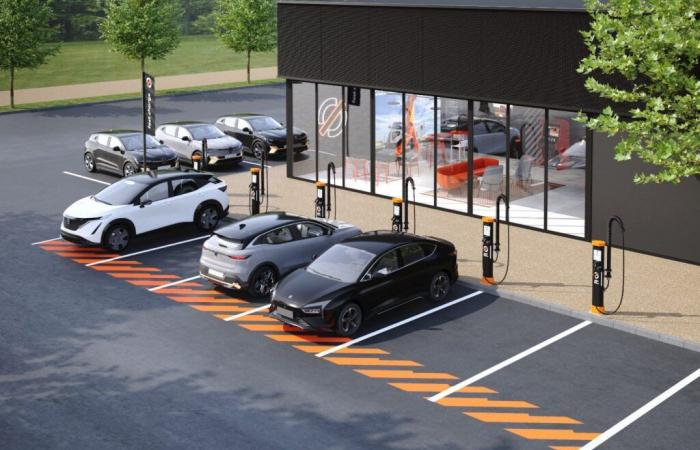The transition to electric cars will experience a major turning point in 2025. URSSAF has just announced the end of a flagship measure which allowed companies to offer free electricity to their employees with an electric vehicle.
This decision comes in a context where electric mobility is becoming a necessity, particularly with the proliferation of Low Emission Zones (ZFEs) in large cities.
A tax advantage that disappears after four years of existence
Since 2020, companies have benefited from an advantageous tax framework for the installation and use of electric charging stations. This provision allows them to make charging points available without the electricity consumed being considered as a benefit in kind.
Concretely, employees can recharge their vehicle for free at their workplace, without impact on their pay slip or their employer's social security contributions.
This incentive measure has largely contributed to the growth of electric vehicles in France. It represents a strong argument for many employees when purchasing an electric car, with free charging at work making it possible to significantly reduce the cost of using the vehicle. But this golden period will come to an end on December 31, 2024.
A new situation potentially affecting the wallets of employees
From January 1, 2025, the provision of charging stations in companies must be included in the calculation of benefits in kind. This change will have repercussions for both employers and employees.
Companies will have to pay social contributions on the value of the electricity supplied, while employees could see this advantage appear on their tax form.
This regulatory change presents businesses with several options. They will be able to continue to offer free charging, but will then have to assume the additional costs linked to social security contributions.
They can also opt for a billing system for electricity consumed, or even imagine alternative solutions such as charging packages.
For employees who were considering purchasing an electric vehicle, the financial equation will need to be recalculated. The end of free charging at work could represent a significant additional monthly cost, particularly for those who travel many kilometers.
Controversial timing in the context of the energy transition
The removal of this advantage comes at a delicate time. Low-emission zones are multiplying in large cities, forcing more and more motorists to turn to electric vehicles.
The purchase price of electric vehicles remains high despite government aid, and the end of free charging in the office could discourage some candidates for the transition.
The URSSAF justifies its position by a logic of tax fairness: a benefit provided by the employer, whether in kind or in cash, must be treated in the same way. This approach nevertheless raises questions about the coherence of public policies regarding energy transition.
The measure also highlights existing inequalities within companies. Until now, only employees with the means to acquire an electric vehicle benefited from this advantage, creating a form of indirect discrimination.
- Free charging of electric vehicles in business will be considered a benefit in kind from January 1, 2025
- Employers will have to pay social security contributions on the electricity supplied, and employees could be taxed on this benefit
- This change could slow the adoption of electric vehicles as low-emission zones become more widespread
???? To not miss any news from Presse-citron, follow us on Google News and WhatsApp.






